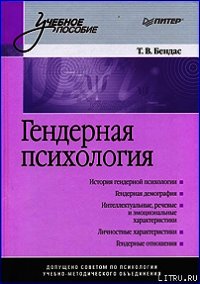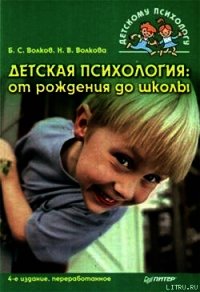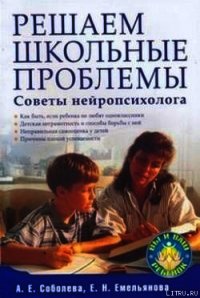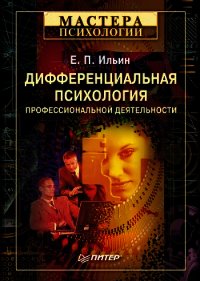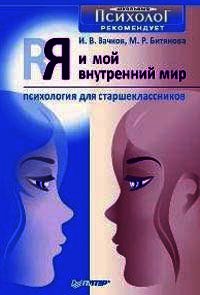Психология творчества, креативности, одаренности .. - Ильин Евгений Павлович (книги без регистрации TXT) 📗
Organizational Psychology. 2000. V. 9. № 1. P. 31–43. Allison C. W., Hayes J. The cognitive style index: A mesure of intuition-analysis for organizational research //
Journal of Management Studies. 1996. V. 33. № 1. P. 119–136. Amabile T. M. The social psychology of creativity. NY. Springer-Verlag. 1983.
Amabile T. M., Hannesey B. A. The conditions of creativity // R. Sternberg, T. Tardif (eds.). The nature
of creativity. Cambridge. Cambridge University Press. 1988. P. 11–43. Amabile T. M., Hannesey B. A., Grossman B. S. Social influences on creativity: The effects of contracted
choice for reward // Journal of Personality and Social Psychology. 1986. V. 50. P. 14–23. Anderson H. H. Creativity and its Cultivation. NY. 1959.
Andreason N. Creativity and mental illnes: Prevalence rates in writers an their first degree relatives //
American Journal of Psychiatry. 1987. V. 144. P. 1288–1294. Ariety S. Creativity. NY. 1979.
Averill J. R., Thomas-Knowls C. Emotional Creativity // K. T. Strongman (ed.). International review of
studies on emotion. V. 1. Chichester. Wiley. 1991. BabadE. Y. A multimethod approachto the assessment of humor: A critical look at humor tests // Journal
of Personality. 1974. V. 42 (4). P. 618–631. Barclay C. R., Pettito A. L. Creative activity in the context of real life: A response to Csikczentmihalyi //
New Ideas in Psychology. 1989. V. 7.1. P. 41–48. Barron F. Discovering of creative personality // The Behavioral sciences and education. NY. 1963. P. 47–67. Barron F. Creativity and personal freedom. Princeton. Van Nostrand. 1968.
Barron F. The disposition toward originality // P. E. Vernon (ed.). Creativity. L. 1972. P. 273–288.
BarronF. Putting creativity to work // R. Sternberg, T. Tardif (eds.). The nature of creativity. Cambridge.
Cambridge University Press. 1988. P. 76–98. Barron F., Harrington D. Creativity, intelligence and personality // Annual Review of Psychology. 1981.
V. 32. P. 439–476.
Bastick T. Intuition: How we think and act. NY. John Wiley and Sons Inc. 1982.
Baylor A. M. A three component conception of intuition: Immediacy, sensing relationships and reason //
New Ideas in Psychology. 1997. V. 15. № 2. P. 185–194. Baylor A. M. A U-shaped model for the development of intuition by level of expertise // New Ideas in
Psychology. 2001. V. 19. № 3. P. 237–244. Behling O., Eckel N. L. Making sense out of intuition // Acad. of Manag. Executive. 1991. V. 5. № 1. P. 46–54. Belanger H. G., Kirkpatrick L. A., Derks P. The effects of humor on verbal and imaginal problem solvin //
Humor: International Journal of HumorResearch. 1998. V. 11 (1). P. 21–31. Berelson B., Steiner G. A. Human Behavior. NY. Harcourt. Brace. 1964.
Berkowitz B. Changes in intellect with age. IV. Changes in achievement and survival in older people //
Journal of Genetic Psychology. 1965. V. 107. P. 3–14. Berlyne D. E. Structure and Direction in Thinking. NY. John Willey. 1965.
Berry D. C., Brodbent D.E. Implicit learning in the control of complex system // P. A. Frensch, J. Funke
(eds.). Complex problem solving. NY. 1995. Besemer S. P., Treffinger D.J. Analysis of creative products: Review and synthesis // Journal of Creative
Behavior. 1981. V. 15. P. 158–178. Bleiler E. Das autistische Denken // Jahrbuch fur psychoanalitische und psychopathologische
Forschungen. 1912. № 4. BjorkstenJ. The limitation of creative years // Scientific Monthly. 1946. V. 62. Boden M. The creative mind: Myths and mechanisms. NY. Basik Books. 1992. Boden M. A. Creativity and artifical intelligence // Artifical Intelligence. 1998. V. 103. P. 347–356. Bogerman W. G. Studies of Genius. NY. 1947. Bolton N. The psychology of Thinking. London. 1972. Boorstin D. J. The image. Penguin Books. 1968.
Botwinick J. Cognitive process in maturity and old age. NY. Springer. 1967.
Boushard T. J. Personality, problem-solving procedure and performance in small groups // Journal of
Applied Psychology. 1969. V. 53. № 1. Pt. 2. P. 1–29. Boushard T. J., Hare M. Size, performance and potential in brain-storming groups // Journal of Applied
Psychology. 1970. V. 54. P. 51–55.
Bowers K. S., Regehr G., Balthazard C., Parker K. Intuition in the context of discovery // Cognitive
Psychology. 1990. V. 22. P. 72–110. Branch M., Cash A. Gifted children. Recognizing and developing exceptional ability. NY. 1966. Brehmer B. Effect of communication and feed-back on cognitive conflict // Scand Journal of Psychology.
1971. V. 12 (3). P. 205–216. Brockman E. N., Antony W. P. The influence of tacit knowledge and collective mind on strategic planning //
J. Managerial Issue. 1998. V. 10. P. 204–224. Brogden H. E., Sprecher T. B. Criteria of Creativity // C. W. Taylor (ed.). Progress and Potential. NY.
1964.
Brozek J. The age problem in research workers: psychological viewpoint // Scientific Monthly. 1951. V. 72 (5). Burt C. L. Critical Notice: the psychology of creative ability // British Journal of Educational Psychology. 1962.V. 32.
Burt C Is intelligence distributed normally? // British Journal Statistical Psychology. 1963. V. 16, P. 175–190. Butler R. H. The destiny of creativity in later life: studies of creative people and the creative process // S.
Levin, R. J. Kahana (eds.). Psychodynamic Studies on Aging: Creativity, Reminisoing and Dying. NY.
International University Press. 1967. P. 20–21. Cangelosi D. M., Schaefer C. E. A twenty-five year follow-up study of ten exceptionelly creative adolescent
girls // Psychological Report. 1991. V. 68. P. 307–311. Carlson I. L. Inheritance of creative intelligence. Cicago. 1978. P. 138.
Carlson I., Wendt P. E., RisbergJ. On the neurobiology of creativity. Differences in frontal activity between
high and low creative subjects // Neuropsychologia. 2000. V. 38. P. 873–883. Carter H. Gifted children // Encyclopedia of Educational Research. NY. 1960. P. 583–593. Cattell R. B. Abilities. Their Structure, Growth and Action. Boston, Houghton Mifflin company. 1971. Cattell R. B. Personality and learning theory. NY. Spring. 1979.
Cattell R. The Inheritance of Personality and Ability Research. Methods and Findings. NY. London: Academic Press. 1982.
Chambers J. A. Relating personality and biographical factors to scientific creativity // Psychological
Monography. 1967. V. 78. № 7. Chapman M. «When the enterpreneur sneezes, the organization catches a cold»: A practitioners perspective
on the state of the art in research on the enterpreneurial personality and the enterpreneurial process //
European Journal of Work and Organisational Psychology. 2000. V. 9. № 1. P. 97–101. Chi M. T., Cesi S. J. Content knowledge: Its role, representation and restructuring in memory development //
Advances in Child Development. 1987. V. 20. P. 91–142. Claxton G. Investigating human intuition: Knowing without knowing why // Psychologist. 1998. V. 11.
№ 5. P. 217–220.
Claxton G. Anatomy of intuition // T. Atkinson, G. Claxton (eds.). The intuitive practitioner: On the value of not always knowing what one is doing. Buckingham, PA. Open University Press. 2000. P. 32–52.
Cohen S., Jaffe C. The effects of varying the number of conditioned leaders on group problem-solving // Psychonomic Science. 1970. V. 21 (2). P. 95–96.
Conti J. M. Deux aspects de la creativite // Sciences. 1968. № 53.
Conti R., Collins M. A., Picariello M. L. The impact of competition on intrinsic motivation and creativity: Considering gender, gender segregation and gender role orientation // Personal and Individual Differences. 2001. V. 30. P. 1273–1289.
Cox C. M. Genetic studies of genius: V. 2. The early mental traits of three hundred geniuses. Stanford,
CA. Stanford University Press. 1926.
Cratchfield R. S. Instructing the individual in creative thinking // R. L. Mooney, T. A. Razik (eds.).
